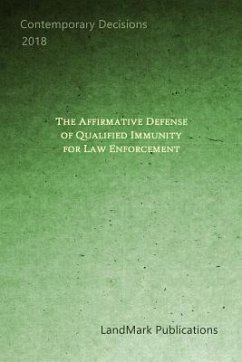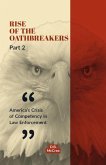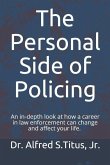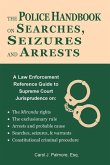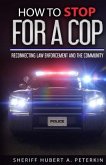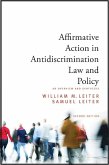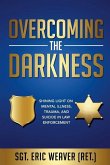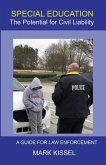THIS CASEBOOK contains a selection of U. S. Court of Appeals decisions that discuss and analyze issues surrounding the doctrine of qualified immunity when used by law enforcement professionals. * * *The doctrine of qualified immunity insulates government officials from lawsuits, shielding them "from undue interference with their duties and from potentially disabling threats of liability." Wright v. City of Philadelphia, 409 F.3d 595, 599 (3d Cir. 2005) (quoting Elder v. Holloway, 510 U.S. 510, 514, 114 S.Ct. 1019, 127 L.Ed.2d 344 (1994)). In determining the applicability of qualified immunity, courts examine two prongs. First, whether the facts alleged (in the context of a motion to dismiss or for judgment on the pleadings) or shown (in the context of a motion for summary judgment or a trial) "make out a violation of a constitutional right." Pearson v. Callahan, 555 U.S. 223, 232, 129 S.Ct. 808, 172 L.Ed.2d 565 (2009). Second, "whether the right at issue was 'clearly established' at the time of defendants' alleged misconduct." Id. (quoting Saucier v. Katz, 533 U.S. 194, 201, 121 S.Ct. 2151, 150 L.Ed.2d 272 (2001)). A right is "clearly established" when its "contours ... [are] sufficiently clear that a reasonable official would understand that what he is doing violates that right." Wilson v. Layne, 526 U.S. 603, 615, 119 S.Ct. 1692, 143 L.Ed.2d 818 (1999) (quotation marks omitted). Courts need not evaluate the two prongs sequentially, Pearson, 555 U.S. at 236, 129 S.Ct. 808, and the failure of either prong will result in application of qualified immunity, James v. City of Wilkes-Barre, 700 F.3d 675, 679 (3d Cir. 2012). Karns v. Shanahan, 879 F. 3d 504 (3rd Cir. 2018). * * *Qualified immunity is an affirmative defense on which the defendant has the burden of proof. See, e.g., Gomez v. Toledo, 446 U.S. 635, 640, 100 S.Ct. 1920, 64 L.Ed.2d 572 (1980); Rogoz v. City of Hartford, 796 F.3d at 247. "To the extent that a particular finding of fact [i]s essential to an affirmative defense, ... it [i]s incumbent on [the defendant] to request that the [factfinder] be asked the pertinent question." Kerman, 374 F.3d at 120. Outlaw v. City of Hartford, ibid.
Hinweis: Dieser Artikel kann nur an eine deutsche Lieferadresse ausgeliefert werden.
Hinweis: Dieser Artikel kann nur an eine deutsche Lieferadresse ausgeliefert werden.

